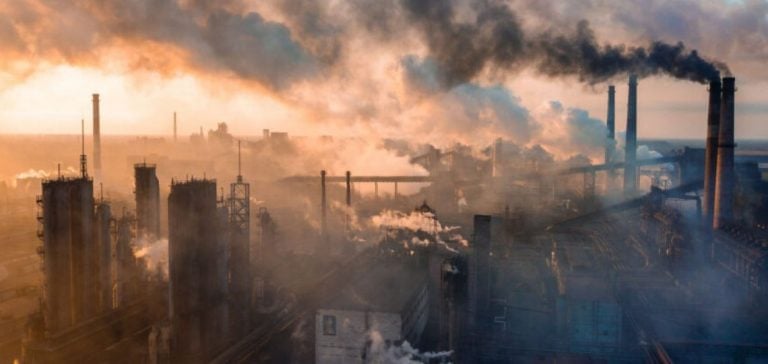In recent days, in-depth analyses of Canada’s greenhouse gas (GHG) emissions have revealed a complex dynamic.
By 2023, the country’ s emissions will be down by around 1% on the previous year, representing a cumulative reduction of 8% on 2005 levels.
These results are in line with Canada’s climate targets, which aim for a 40-45% reduction by 2030.
This trend, while positive, raises questions about the effectiveness of the policies in place and the continuing challenges facing the country.
Progress in the Electricity Sector
The power sector stands out as a key driver of this emissions reduction.
Thanks to initiatives such as the phase-out of coal and the introduction of carbon pricing policies, emissions from this sector have fallen by 6.2% in 2023, achieving a cumulative reduction of 38% since 2005.
Electrification efforts and increased production of renewable energies play a crucial role in this dynamic.
These advances testify to a transition towards cleaner energy sources, which is essential if we are to achieve our climate objectives.
However, this success in the power sector is offset by increases in emissions in other sectors, notably oil and gas.
The oil and gas industry, particularly the oil sands, has recorded a 1% increase in emissions in 2023.
This sector now accounts for almost a third of Canada’s total emissions, raising concerns about the country’s ability to meet its GHG reduction targets.
Challenges in other sectors
Emissions from the transportation sector also rose by 1.6%, mainly due to the post-pandemic resumption of domestic air travel.
This trend, coupled with that of the oil and gas sector, represents a significant brake on Canada’s progress.
Experts point out that, despite advances in the electricity sector, increases in other sectors are undermining overall efforts to reduce emissions.
Rick Smith, President of the Canadian Climate Institute, points out that “progress in reducing emissions in Canada is strikingly different from one sector to another. Governments need to accelerate policy development and strengthen measures already in place, such as electrification and industrial carbon pricing schemes.”
This statement highlights the need for an integrated approach to tackling sectoral challenges.
A positive but modest trajectory
Despite these challenges, Canada remains on a positive, albeit modest, trajectory towards emissions reduction.
By 2023, national emissions will be 7.1% below 2005 levels, a crucial benchmark for the country’s climate objectives.
However, experts insist that greater efforts are needed to accelerate the energy transition.
Measures such as increased carbon pricing and electrification of key sectors need to be stepped up to offset increases in other areas.
Previous research by the Canadian Climate Institute shows that climate policies have a significant impact on reducing carbon pollution.
Without the actions taken since 2015, Canada’s emissions would be 41% higher today.
Existing policies are expected to avoid 226 million tonnes of carbon emissions by 2030, equivalent to the current emissions profiles of Quebec and Ontario combined.
Towards an Accelerated Energy Transition
To meet its 2030 targets, Canada needs to build momentum for the energy transition.
The Canadian Climate Institute recommends that all levels of government, including the provinces and territories, rapidly implement emission reduction policies already announced, strengthen existing ones and introduce new measures.
This proactive approach is essential to ensure Canada’s future competitiveness in the global energy transition.
The challenges remain significant, but progress in the electricity sector offers a model of what can be achieved.
The need for concerted action and robust climate policy is more pressing than ever.
Efforts to decarbonize the Canadian economy must be intensified to ensure that gains in some sectors are not offset by increases in others.






















